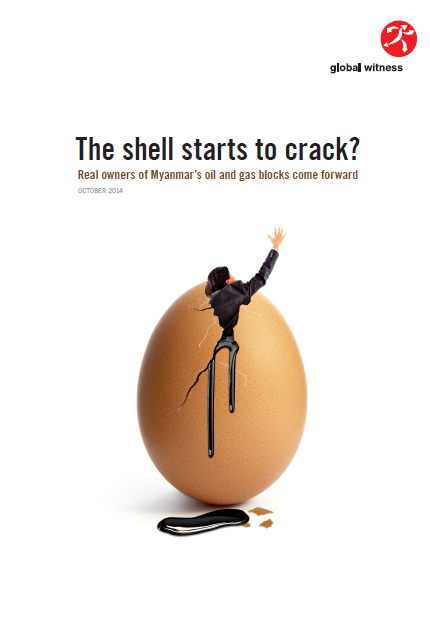Posts Tagged ‘World Bank’ (17 found)
How Community-Driven is the World Bank’s CDD Project?
On August 26, the IFI Watch Myanmar is releasing its findings on the unreported realities in the National Community Driven Development Project or NCDDP. This report is intended to inform the project lender, the World Bank, and the government, the international community and other non-State actors about the gap between the grand objectives that have been overhyped and the actual conditions that communities face in the management of the CDD projects […]
• • •The Shell Starts to Crack? Real Owners of Myanmar’s Oil and Gas Come Forward
Corrupt politicians all over the world use companies and trusts with hidden ownership to seize public property worth billions of dollars. This deprives ordinary citizens of money that should be spent on development and empowers unaccountable elites, often helping them gain and maintain power at the expense of democracy, human rights and peace.
Revealing the real people behind companies is critical to achieving genuine reform in Myanmar, where military families and crony tycoons have long benefited from control of natural resources like gas and gemstones. This is a critical time—in July 2014, Myanmar became a candidate member of the Extractive Industries Transparency Initiative (EITI), a global transparency standard which recommends that the
identities of individuals who own and control oil, gas and mining companies are published. If Myanmar can meet the standard, it will go a long way to addressing the question of who really owns the companies that control the country’s most valuable natural assets […]
World Bank Should Promote Human Rights in Burma, NGOs Say
RANGOON — Human Rights Watch (HRW) and Burmese civil society organizations have urged the World Bank Group to put human rights at the center of its new Burma country strategy.
They said the bank should encourage an improvement in respect for rights within the Burmese government, while also ensuring that its development projects do not exacerbate ethnic conflict and the land rights’ situation […]
• •World Bank Group: Tackle Burma Rights Concerns
(Washington, DC) – The World Bank Group should act to overcome Burma’s major human rights problems in its new strategy for the country, Human Rights Watch said in a submission to the bank released today. Key issues include rights violations against ethnic minorities, widespread land grabs, and systematic corruption […]
• • •Joint Submission on the Proposed World Bank Group’s Country Partnership Framework (CPF) in Myanmar
We, the undersigned organizations in Myanmar and other countries, respectfully submit these comments to the World Bank Group to inform the development of the Country Partnership Framework for Myanmar. We belong to civil society organizations and ethnic community networks with a focus on human rights, environment, peace and mediation, and good governance with significant expertise and experience in Myanmar […]
• • •Press Release: World Bank Moves to Undermine the Rights of Indigenous Peoples
In an unprecedented move, the World Bank will be proposing that governments could ‘opt-out’ of requirements designed to protect indigenous peoples from unintended and negative consequences from development activities funded by the multilateral lender. In a leaked draft of new environmental and social standards to be considered for public consultation by a committee of the World Bank Executive Board on 30th of July, language has been included that would allow governments to disregard their existing obligations to indigenous peoples […]
• • •Press Release: IFC Should Postpone Burma Investment
(Washington, D.C) – US Campaign for Burma (USCB) calls on the World Bank Group’s International Finance Corporation (IFC) to ensure that IFC investments in Burma are oriented toward poverty alleviation, and to prioritize safeguards and transparency. Three out of the IFC’s five projects in Burma involve the construction of upscale hotels, and the most recently proposed IFC project will excuse the Burmese client, Yoma Bank, from implementing basic due diligence and safeguards […]
• • •Campaigners Criticise “Premature” Burma Debt Cancellation
$5.9 billion to be written-off and new loans to military dictatorship to begin.
Western countries, in a body called the Paris Club, have agreed to cancel 50 per cent of the debt owed to them by Burma. The World Bank and Asian Development Bank have also agreed to start lending to the Burmese government again. The move comes after the Burmese government signed-up to a set of IMF economic conditions earlier this month […]
• • •Hastily Introduced World Bank Projects Threaten to Undermine Peace Process in Burma
By Khin Ohmar
In late 2012 the World Bank announced its first lending to Burma (also known as Myanmar) in over 20 years. The $80 million grant, to be implemented by the Ministry of Border Affairs, is for community driven development (CDD) projects that are aiming to provide tangible benefits to communities, including those affected by decades of conflict in Burma. The concern among many grassroots activists, however, is that the areas to which this money will be funnelled are still in the earliest stages of the peace process, and that huge influxes of money will undermine efforts for sustainable peace.
On 22 January the Bank’s board will consider its second round of loans to Burma, through a $440 million development policy loan called the ‘Reengagement and reform support programme’. Its objectives are: “to support Myanmar’s critical reforms for strengthening macroeconomic stability, improving public financial management, and improving the investment climate” and to “facilitate the clearance of Myanmar’s arrears to IDA”. This money will flow through the ministry of finance […]
• •World Bank Breaches Own Policy and Ignores Civil Society’s Request for Postponement of Project
On 1 November, the World Bank’s Board of Directors decided to go ahead with a US$80 million Community Driven DevelopmentProject, despite Myanmar civil society organization’s official request to postpone the project until the World Bank holds […]
• •









 All posts
All posts